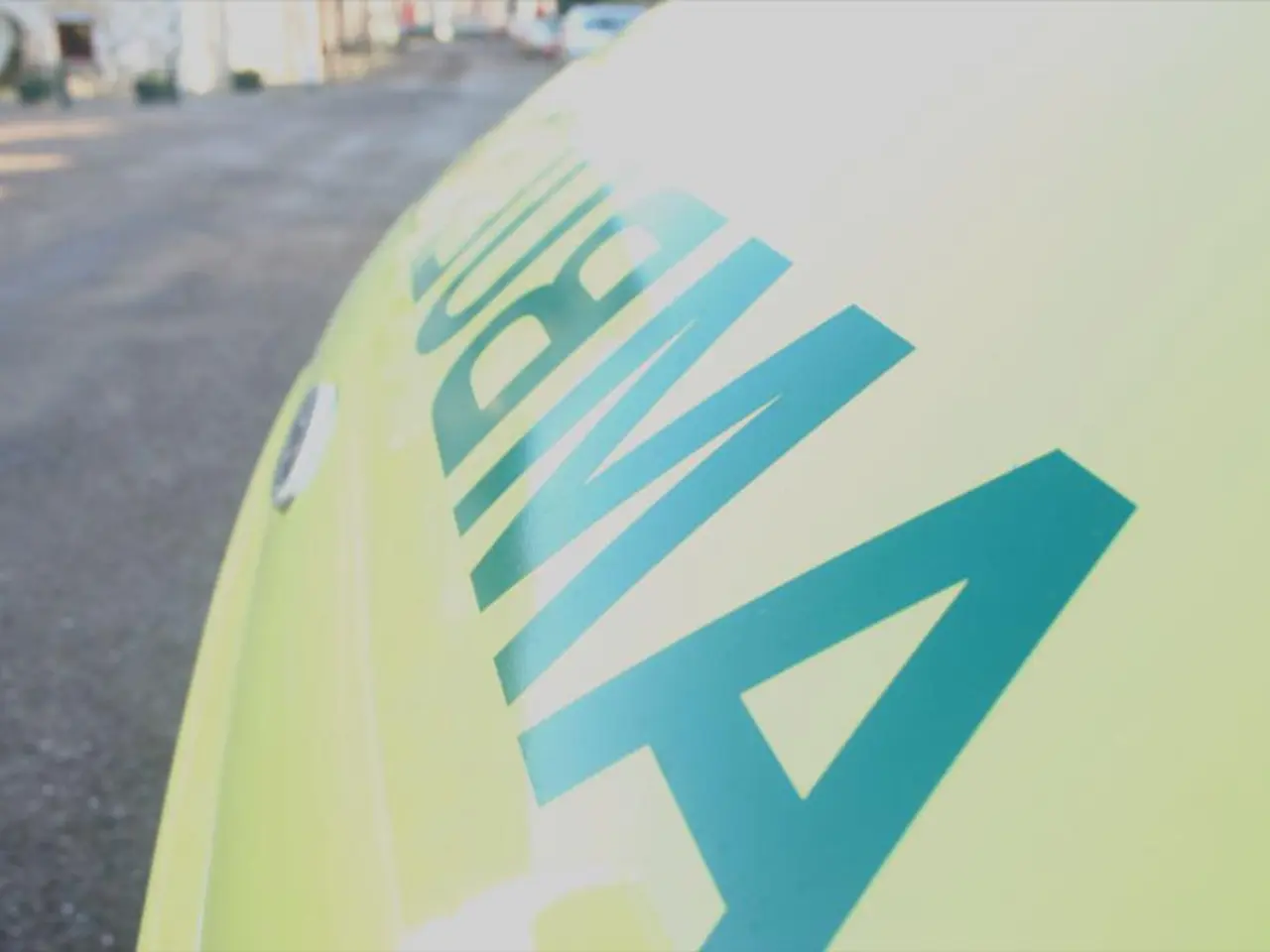Dusseldorf introduces eco-friendly hydrogen gas storage tank
In a significant stride towards a greener future, Düsseldorf, Germany, has unveiled Europe's most powerful hydrogen refueling station, inaugurated in May 2025. The new facility, developed by H2 MOBILITY in collaboration with Rheinbahn and Stadtwerke Düsseldorf, is set to revolutionize hydrogen mobility in the region[1][3].
The station, located on Höherweg, boasts a daily capacity of up to five tonnes of certified renewable hydrogen, far surpassing previous facilities in Germany[1][3]. It is equipped to refuel three vehicles simultaneously at varying pressures (350, 500, 700 bar), catering to buses, trucks, passenger cars, and light commercial vehicles[1][3].
The hydrogen refueling station in Düsseldorf is part of an integrated concept that combines hydrogen production, infrastructure, and demand. The project demonstrates local cooperation among city transport (Rheinbahn), utility providers (Stadtwerke Düsseldorf), and mobility infrastructure firms[2]. Plans also include the installation of a 2 MW electrolyser powered by waste-to-energy electricity in 2026, which will produce green hydrogen onsite, further reinforcing sustainability and supply security[3].
This infrastructure development is a critical step in Düsseldorf's and North Rhine-Westphalia's broader climate goals. With Germany aiming for climate neutrality by 2045 and regions like Düsseldorf targeting accelerated timetables (e.g., climate neutrality by 2035), the hydrogen station plays a strategic role in decarbonizing the transport sector, which contributes roughly 20% of national greenhouse gas emissions[4].
The Rhine-Ruhr buses and other fuel cell vehicles will regularly come to Höherweg for refueling. This shift towards hydrogen mobility is seen as essential for reducing urban emissions and achieving climate targets[5]. Düsseldorf’s leadership in hydrogen infrastructure aligns with Germany’s overall push toward advanced tech and renewable energy industries, making it a hub for the energy transition and sustainable transport technology[2].
The new hydrogen filling station on Höherweg is built and operated by H2 Mobility GmbH. The federal government has contributed a total of 3.137.000 euros for the construction of the station, with an additional 1.212.000 euros provided for the electrolyzer[6]. Mayor Stephan Keller stated that the new hydrogen filling station on Höherweg shows that Düsseldorf is on the right track towards its goal of climate neutrality by 2035[7].
Julien Mounier, CEO of SWD, stated that the local production creates local added value and contributes significantly to the decarbonization of Düsseldorf's mobility sector[8]. The use of buses in the Rhine-Ruhr fleet powered by hydrogen and the expansion of the corresponding infrastructure are a win for climate protection and modern mobility in Düsseldorf. Moreover, the local production of hydrogen at Höherweg avoids CO2 emissions from hydrogen transport[9].
In summary, Düsseldorf’s hydrogen refueling infrastructure stands as a pioneering facility critical for enabling wide-scale hydrogen mobility, thereby supporting the city’s and Germany’s ambitions for climate neutrality by 2035 and beyond. Its combination of high capacity, renewable hydrogen production, and multi-vehicle compatibility highlights its significance in advancing sustainable transport solutions.
- The hydrogen refueling station in Düsseldorf is a significant development in the field of environmental-science, as it seeks to revolutionize hydrogen mobility and contribute to climate-change mitigation efforts.
- The facility's daily capacity of up to five tonnes of certified renewable hydrogen places it at the forefront of hydrogen technology, surpassing previous facilities in Germany.
- By catering to various vehicle types and offering different refueling pressures, the station supports the adoption of sustainable-living practices in home-and-garden settings, as well as among commercial vehicle operators.
- The hydrogen production and infrastructure project in Düsseldorf is a testament to the city's commitment to sustainable living, aligning with Germany's broader push towards advanced tech and renewable energy industries, ultimately making it a hub for the energy transition and sustainable transport technology.






